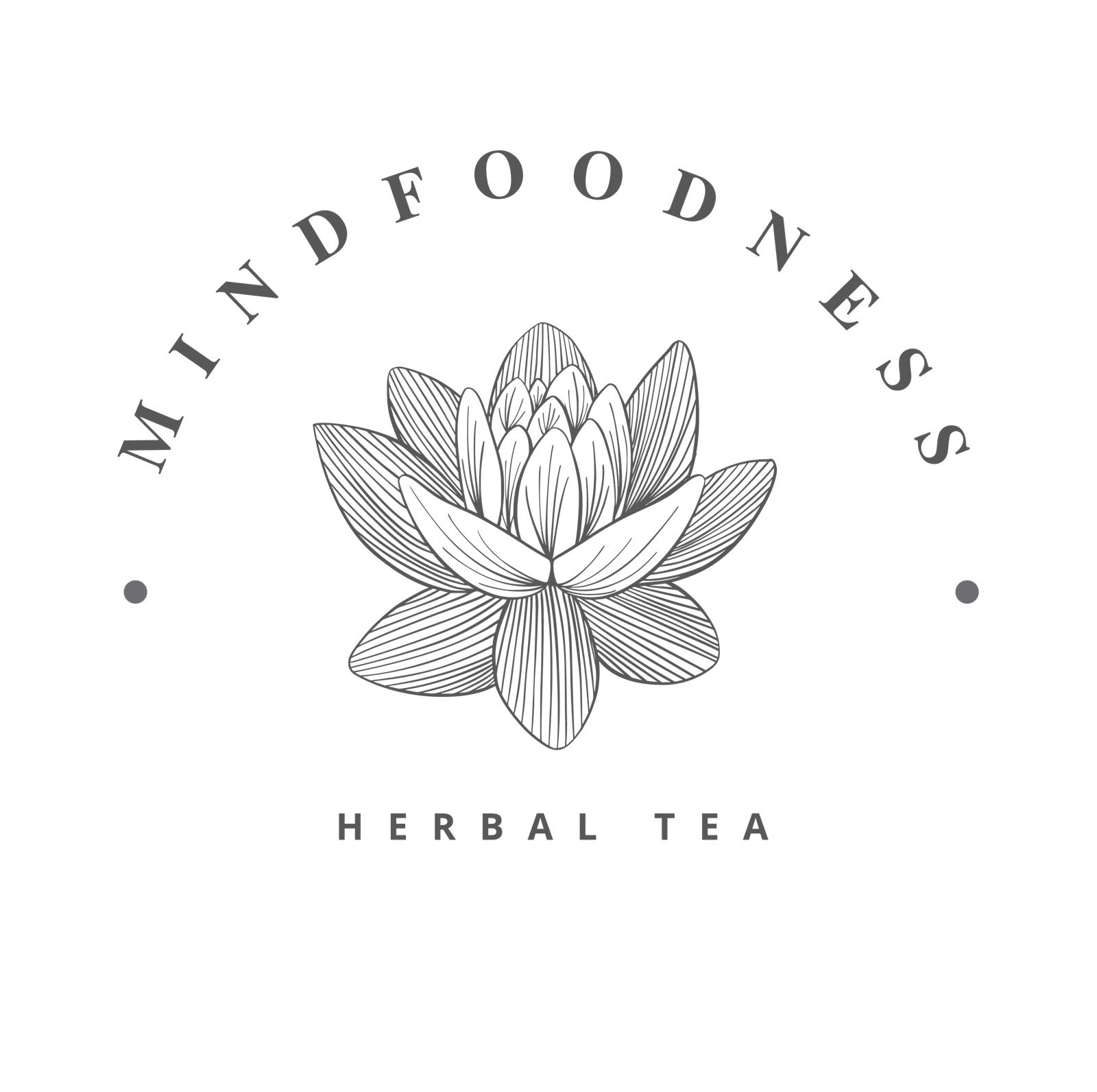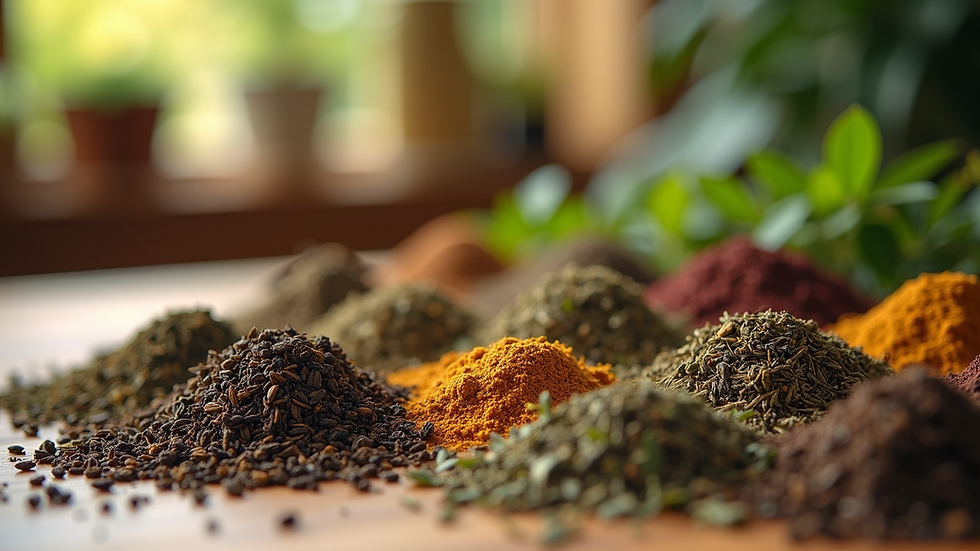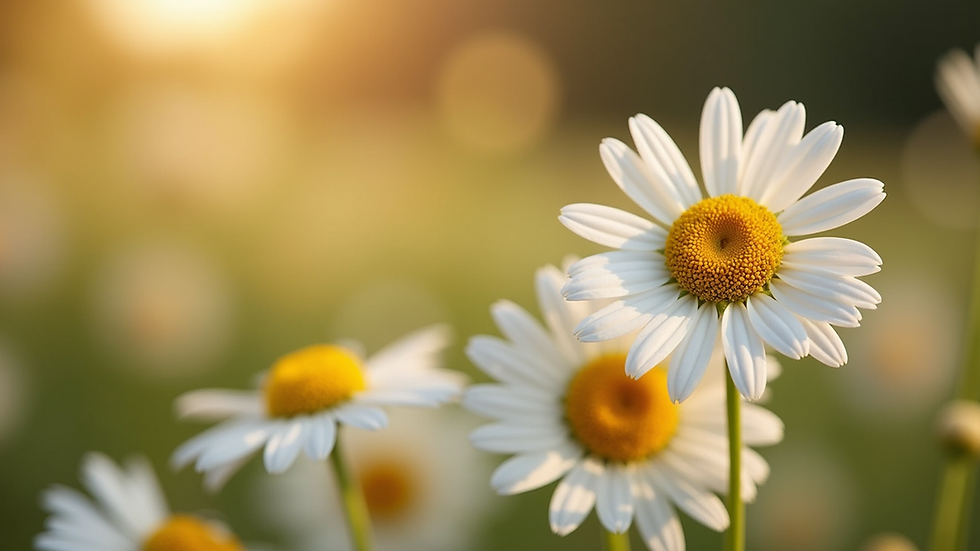Are All Herbal Teas Truly Caffeine-Free?
- mindfoodnesstea

- Jul 22
- 4 min read
When it comes to tea, many people enjoy its myriad of flavors, aromas, and health benefits. However, one significant aspect that often comes into question is caffeine content. Herbal teas are often touted as a caffeine-free alternative, but are all herbal teas truly caffeine-free? In this blog post, we will explore what herbal tea truly means, delve into the types of herbal teas, and uncover which ones might contain caffeine.
Caffeine-Free Herbal Teas
Herbal teas are made from a wide variety of plants, including flowers, leaves, seeds, and roots. Unlike traditional teas derived from the Camellia sinensis plant, herbal teas do not contain tea leaves and are generally considered to be caffeine-free. Common herbal teas include chamomile, peppermint, and rooibos, each offering unique flavors and health benefits.
However, not all herbal teas are created equal. Some blends or specific varieties can contain trace amounts of caffeine, especially if mixed with other caffeinated ingredients. It's essential to check the labels and know what you're drinking.

You might wonder why caffeine content matters. Caffeine is a natural stimulant that can affect your body's system. Avoiding caffeine can help with sleep, anxiety, and other health concerns. For those sensitive to caffeine, knowing which herbal teas are genuinely caffeine-free is crucial.
Understanding Caffeine and Herbal Teas
Caffeine is commonly found in tea, coffee, and chocolate. It functions as a natural pesticide for plants but also has stimulating effects on humans. When we enjoy a cup of tea, the caffeine content can impact our mood and energy levels.
Herbal teas, by their nature, come from a variety of non-tea sources. Most herbal infusions do not contain caffeine. However, specific ingredients can introduce caffeine into a herbal tea blend. For example, teas that combine yerba mate or guarana with herbal ingredients will contain caffeine.
Monitoring caffeine intake is essential for many people, especially those who experience side effects from it, such as jitters or insomnia. Therefore, it's vital to read those labels and understand what goes into your herbal tea.
Which Herbal Teas Are Decaffeinated?
While many herbal teas are naturally caffeine-free, some blends can be decaffeinated through various processes. For example, decaffeinated green tea is popular but still comes from the Camellia sinensis plant. It's important to differentiate between herbal teas and tea blends that include traditional tea leaves.
Some of the most popular truly caffeine-free herbal teas include:
Chamomile: Known for its calming properties, chamomile tea aids in sleep and relaxation.
Peppermint: A refreshing blend often used for digestive benefits, peppermint tea is invigorating without any caffeine.
Rooibos: Originating from South Africa, rooibos is rich in antioxidants and has a sweet, nutty flavor.
Hibiscus: This vibrant herbal tea offers a tart flavor and is rich in vitamin C, with the bonus of being caffeine-free.
If you are ever in doubt, opt for caffeine-free herbal tea brands or check out resources that detail the caffeine content of each blend, which can enhance your confidence in your choices.

Popular Herbal Tea Blends
Herbal tea blends incorporate various ingredients to achieve unique flavors and health benefits. Some popular blends might include:
Lemon Ginger: A zingy mix perfect for boosting immunity and comfort.
Lavender Chamomile: A soothing blend that adds a floral note to traditional chamomile.
Spiced Chai: Although chai typically contains black tea, many herbal variations combine spices like cinnamon, cardamom, and ginger without caffeine.
When choosing herbal tea blends, be cautious and read the ingredient list to avoid any surprises.
Health Benefits of Caffeine-Free Herbal Teas
Caffeine-free herbal teas are not only delicious but also offer several health benefits. Here are some of the significant advantages of incorporating these teas into your daily routine:
Improved Sleep Quality: Teas like chamomile and valerian root are known to promote relaxation and improve sleep quality.
Digestive Aid: Herbal teas such as peppermint and ginger help ease digestive issues, reducing bloating and discomfort.
Rich in Antioxidants: Many herbal teas, like rooibos and hibiscus, are packed with antioxidants that combat oxidative stress, promoting overall health.
Hydration: Herbal teas can be a great way to stay hydrated, especially if you prefer warmth over cold beverages.
While most herbal teas are naturally caffeine-free, always verify the ingredients to ensure you are getting a beverage that suits your health needs. It’s excellent to pair enjoyment with wellness!

Final Thoughts on Caffeine-Free Herbal Teas
As you explore the world of herbal teas, the question of whether all herbal teas are truly caffeine-free will likely arise. While the majority are free from caffeine, it's essential to be aware of specific blends and added ingredients that may introduce traces of caffeine. For those looking for natural relaxation or digestive aids, herbal teas present a remarkable option.
So the next time you ask yourself, "are all herbal teas caffeine free?" remember to examine those labels and ingredients. This knowledge can help you make more informed choices, allowing you to enjoy the diverse and soothing world of herbal teas without worry.
Incorporating caffeine-free herbal teas into your routine can promote wellness, relaxation, and delight in flavorful experiences. Here's to enjoying those soothing sips!
.png)



Comments